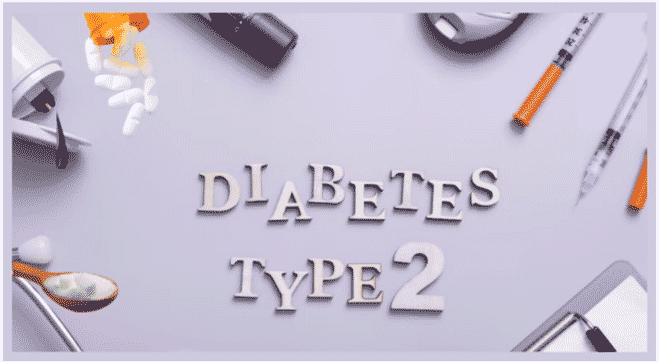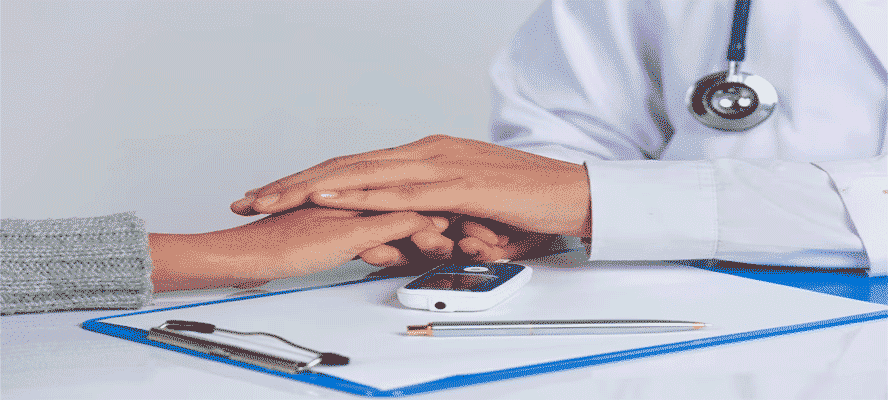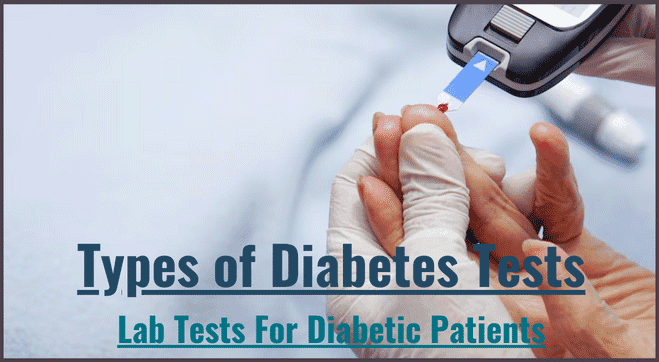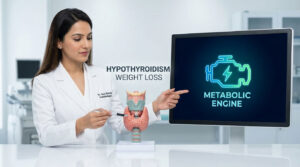What Is Type 2 Diabetes?
Type 2 diabetes more commonly known as diabetes mellitus type 2 and adult-onset diabetes is a chronic medical condition in which your body’s glucose levels in the bloodstream are quite high. Your body does not respond effectively to insulin, a naturally occurring hormone that is responsible for transporting glucose to body cells. As a result of diabetes incidence, your pancreas tends to produce more insulin, which gets accumulated and leads to insulin resistance.
In individuals with type 2 diabetes, insulin is unable to function effectively, leading to a continuous increase in blood glucose levels and the release of more insulin. Over time, this can cause the pancreas to become exhausted in some people, resulting in a decrease in insulin production and even higher blood glucose levels, a condition known as hyperglycemia.
What Is Insulin Resistance?
Insulin resistance is a condition where the body’s cells don’t listen well to a hormone called insulin. Insulin is like a messenger made by the pancreas that helps control how much sugar is in our blood. When cells ignore insulin, they can’t use sugar from the blood for energy, causing high sugar levels in the blood.
Over time, the pancreas tries to make even more insulin to fight this problem. But if the cells keep ignoring it, sugar levels can stay high, and there’s a bigger chance of getting type 2 diabetes. Insulin resistance often comes with other health issues like being overweight, heart problems, fatty liver, a Metabolic Syndrome, and a condition called polycystic ovary syndrome (PCOS).
Unlike type 1 diabetes, the symptoms of type 2 diabetes grow at a relatively slower pace, often putting you at risk of ignoring them for a long time. However, recognising the symptoms early on can help you improve your outlook.
Did you know:
- As per the International Diabetes Federation’s projections, 573 million adults aged between 20 to 79 years have been diagnosed with diabetes in 2021. This statistic is projected to be 643 million by 2030 and 783 million by 2045. Also 240 Million People living with undiagnosed diabetes
- With Type 2 diabetes accounting for approximately 90% of the entire diabetes burden, the statistics are alarming.
Major Types Of Diabetes
Understanding the different types of diabetes is a crucial step in grasping the intricacies of this condition. From Type 1 to Type 2 and beyond, each type presents its own unique challenges and considerations. There are three main types of diabetes:
- Type 1 diabetes: Immune system attack on insulin-producing cells, requiring insulin for management.
- Type 2 Diabetes: Insulin resistance and/or inadequate insulin production, often influenced by lifestyle.
- Gestational Diabetes: Temporary condition during pregnancy, affecting blood sugar levels.
Stages Of Type 2 Diabetes
Insulin Resistance
Insulin hormones produced by your pancreatic cells play a crucial role in your metabolism and glucose transportation to your body cells. As an autoimmune reaction, your immune system may attack these insulin-producing cells, which impacts insulin secretion in the body. Your liver and muscles may end up storing excess insulin or releasing the excess into the bloodstream. The signs of insulin resistance are hard to recognise, and thus, this first stage of type 2 diabetes often goes unnoticed, which paves the way for the second stage – prediabetes.
Prediabetes
Glucose levels outside the normal range but not alarming enough to be deemed type 2 diabetes glucose levels are a clear indicator of the prediabetic stage. Type 2 diabetes prevention and reversal is possible at this stage with the right lifestyle choices. Obesity, physical inactivity, a history of PCOD, hypercholesterolemia, and hypertension can put you at a higher risk of type 2 diabetes and avoiding or effectively managing these can help you prevent this form of diabetes.
Type 2 Diabetes (Without Allied Complications)
At this stage of type 2 diabetes, you may or may not experience all the potential symptoms. However, if these symptoms, such as heightened thirst, hunger, urination, and fatigue, are left unmanaged, your prognosis over time will worsen. If your Fasting Blood Sugar Test reading is more than 126 mg/dL and your symptoms are progressing fast enough, you should consult your healthcare provider or diabetologist without any further delay.
Type 2 Diabetes with Vascular Complications
This is deemed the final stage of type 2 diabetes wherein your body may suffer vascular damages in a variety of forms, such as:
- Diabetic Retinopathy – A condition in which the blood vessels in the back of your eye become swollen, leading to fluid leaks and may cause vision loss, optic nerve damage, detachment of the retina, cataracts and other complications.
- Atherosclerosis – In this condition, fats and cholesterols, otherwise known as plaques, get deposited in your arteries, which restricts blood circulation. In acute conditions, the arteries might be completely blocked, which may lead to heart failure, stroke and other cardiovascular hazards.
- Diabetic Nephropathy – Apart from your eyes and vascular tissues, kidneys also get severely impacted due to uncontrolled and fast-progressing type 2 diabetes. In Nephropathy, your kidneys fail to eliminate the waste and excess fluid, causing kidney failure. Dialysis and a kidney transplant are the key measures to manage Diabetic Nephropathy.
While a complete cure for type 2 diabetes is yet to be pinned down, a lack of proper management can lead to severe health complications. An on-time and conclusive diagnosis is crucial for adopting a proper type 2 diabetic management plan.
Symptoms Of Type 2 Diabetes
The key type 2 diabetes symptoms that you should be watching out for are:
- Excessive hunger or thirst sensations
- Frequent urination
- A sense of fatigue or lack of energy even after being rested properly
- Darkened skin patches (Dark, velvety patches, a condition known as acanthosis nigricans)
- Slow wound healing and frequent skin infections
- Blurry Vision
These are some of the early signs of type 2 diabetes mellitus , which is common to be confused with other health complications and, thus, ignored. However, if these above symptoms are accompanied by sense of numbness or tingling in the feet or hands, it is recommended to opt for diabetes test at home.
Causes Of Type 2 Diabetes
The exact type 2 diabetes causes are yet to be established.
The most commonly identified causes of type 2 diabetes are:
- Genetic predispositions
- Insulin Resistance, In type 2 diabetes, body’s cells ignore insulin, making it hard to use sugar.
- Metabolic syndrome is a group of conditions raising type 2 diabetes risk, metabolic syndrome happens when you have at least three of these conditions: high blood pressure, high cholesterol (hyperlipidemia), high blood sugar levels, and being overweight.
- Lifestyle disorders/Sedentary lifestyle leading to Obesity, Hypertension and Hypercholesterolemia, etc.
- Gestational diabetes during pregnancy raises later type 2 diabetes risk for both mothers and their babies.
- Hormonal Imbalance, Female hormonal imbalance issues like PCOS raise insulin resistance and type 2 diabetes risk.
Type 2 Diabetes Risk Factors and Complications
The commonly known side effects of type 2 diabetes include:
- Prediabetes: A preliminary stage that precedes the actual diabetes phase. In this phase, your blood sugar level stays almost close to 140 mg/dL.
- Hypertension: High blood pressure, though controlled, can pose risks for type 2 diabetes.
- Cholesterol: If you have high triglycerides and low HDL cholesterol levels, you are at risk of type 2 diabetes.
- PCOD: A history of PCOD symptoms can put you at a higher risk of type 2 diabetes.
- Gestational Diabetes: Some women tend to develop diabetes symptoms during pregnancy, which often goes away on its own after childbirth. However, this may pose a substantial risk for type 2 diabetes at a later stage.
- Obesity: While obesity can’t be a definitive reason for type 2 diabetes, most people identified with this type of diabetes have been found to be overweight.
- Cardiovascular Diseases and Neurological Conditions: Depression deemed as potential risk factors for type 2 diabetes.
- Family History: If either of your parents or any of your siblings have had a brush with type 2 diabetes, you are at a higher risk though you might not necessarily develop it at a later course.
- Extreme Physical Inactivity: Leading a sedentary lifestyle, devoid of regular physical activity, is a significant risk factor for developing type 2 diabetes.
- Race and Ethnicity: American Indians and people of Hispanic descent are more likely to develop diabetes mellitus type 2 over their lifespan.
Unlike type 1 diabetes, type 2 diabetes progresses slowly and has many stages that manifest with symptoms. Understanding the stages as per the symptoms can help you seek the right diagnostic and treatment measures.
Type 2 Diabetes Diagnosis and Tests
Type 2 Diabetes symptoms manifest in different forms and degrees in different individuals. Thus, opting for a periodic health checkup packages that involves FBS, PPBS, and other key diagnostic measures is crucial.
- FBS Test – This test measures your blood glucose level when you have had a fasting of at least 8 to 10 hours.
- Post Prandial Blood Sugar Test – PPBS Test aims to measure your body’s response to after-food insulin release and functioning that directly dictates your post-food blood glucose levels.
- HbA1c Test – Glycosylated Hemoglobin Test aims to measure your blood glucose levels over an extended period to reassess the treatment and preventive roadmap.
- Random Blood Sugar Test – RBS Test is an impromptu test that helps determine your body’s glucose levels at any point in time. This can offer an unbiased or unorchestrated reading of blood sugar levels.
- You can opt for Diabetes Test – Basic or Diabetes Test – Advanced packages or standalone tests as recommended by your healthcare provider.
Type 2 Diabetes Treatment & Management
Want to know how to reverse type 2 diabetes? Well, Type 2 diabetes may arise due to and lead to a host of health complications. Thus, treatment for type 2 diabetes involves a holistic roadmap that includes diabetes management, management of high cholesterol and high blood pressure levels as well as caring for your kidneys, eyes, heart and vascular organs.
Medical Treatments
- Medications – Your diabetologist will recommend a standalone or a combination of medications to bring down and keep your blood sugar levels in the normal range. When your type 2 diabetes is diagnosed early, it can be effectively managed with medicine administrations. However, the efficacy may differ depending on your overall health profile and other key aspects.
- Insulin – Based on your type 2 diabetes symptoms and extent of insulin resistance, your healthcare provider will recommend you to take insulin through a syringe, pen or pump.
- GLP-1 Receptor Agonists: Injections that suppress the appetite, lower blood sugar, and promote weight loss.
- SGLT-2 Inhibitors: Drugs that aid in the kidneys’ ability to excrete extra sugar in the urine.
- Management of Blood Pressure and Cholesterol: Drugs can lower blood pressure and cholesterol, which are frequently raised in diabetics.
Home Remedies
- Healthy Lifestyle – Obesity and physical inactivity have been linked to type 2 diabetes, and thus, opting to manage the right weight and staying optimally active can help you improve the efficacy of your type 2 diabetes management roadmap.
- Consistent Health Checkups – Your heart, vascular organs, eyes, kidney and feet are at an increased risk of developing health complications due to type 2 diabetes. Getting periodic health profile checks can help detect anomalies on time and thus seek the right treatment. You can also opt for complete body checkup.
- Stress Management: Use relaxation methods to reduce stress hormones, such as deep breathing, meditation, or yoga.
- Limit Alcohol: Since alcohol might alter blood sugar levels, consume it sparingly.
- Quit Smoking: If you smoke, you might want to stop because it can make difficulties associated to diabetes worse.
- Well-balanced Diet: Some food for type 2 diabetes plays a crucial role in its management. Try including food items that are high in nutrients and devoid of empty calories. Avoid consuming saturated fat-rich foods, processed meats, refined baked goods, processed snacks and high-sugar beverages. Following an ideal type 2 diabetic diet can help you manage its symptoms effectively.
Note From HealthcareOnTime
This disease is more than just a medical term; it’s a complex and potentially life-altering challenge that demands our attention. Your health is worth safeguarding, and each choice you make today sets the tone for the journey ahead. Consult with your healthcare provider to gain deep insights into how to prevent type 2 diabetes, your risks, symptoms and how well you can avoid other allied health complications.
At HealthcareOnTime, we are committed to offering you blood testing from home solutions in an easy, quick, and hassle-free manner. Stay vigilant today to choose a better outlook for tomorrow.
Sources
Ref Links:
- https://www.verywellhealth.com/stages-of-type-2-diabetes-6503545
- https://diabetes.org/diabetes/type-2
- https://www.cdc.gov/diabetes/basics/risk-factors.html
- https://www.niddk.nih.gov/health-information/diabetes/overview/what-is-diabetes/type-2-diabetes
- https://www.healthline.com/health/type-2-diabetes#management
- https://www.who.int/news-room/fact-sheets/detail/diabetes












